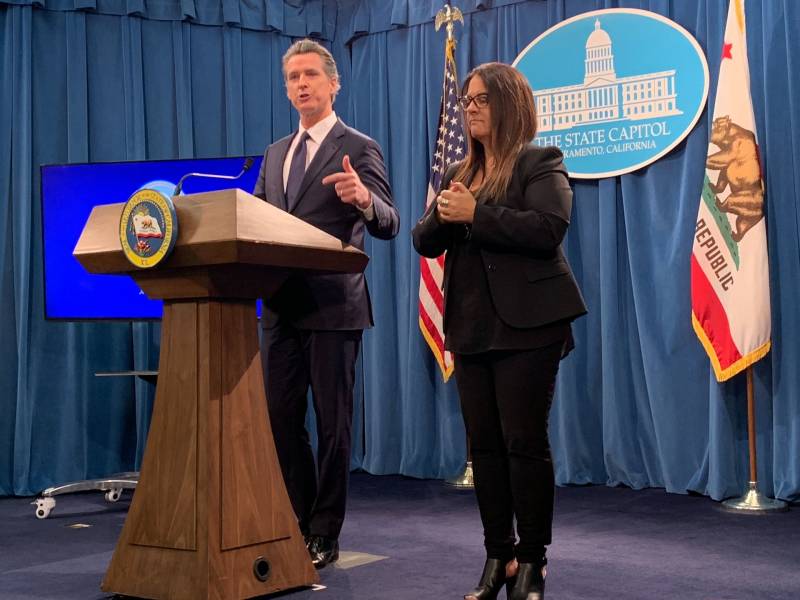The governor is proposing $900 million to help train and support teachers in the state's high-poverty schools; and $250 million to help reform the special education system. He also wants lawmakers to appropriate $300 million for one-time grants and technical assistance to create improvement plans at California's lowest-performing schools and another $300 million for one-time grants to help support kids' mental health.
The budget also proposes the creation of a Department of Early Childhood Development to create a more "unified, quality affordable child system." The budget would fund 10,000 new preschool spots as part of the state's goal to eventually provide preschool to all low-income four-year-olds.
"If you wanna support children, you have to support caregivers. If you wanna support parents you have to support children," he said.
And the governor announced that his wife, Jennifer Siebel Newsom, has been working with his administration on a $70 million expansion of the state's school nutrition program.
Housing and Homelessness
Newsom called homelessness the issue that "defines our time" and said the state will invest more than $1 billion to help cities and counties tackle the crisis.
Earlier in the week Newsom released part of his proposal on homelessness and housing, calling for $1.4 billion in spending on a wide range of programs and signing an executive order aimed at getting people on the streets into shelter immediately. He's directing state agencies to make land available immediately to local governments and nonprofits to shelter homeless Californians — as long as the use of the land doesn't delay affordable housing development.
Also included in that proposal is a new fund, managed by the Department of Social Services, that will give direct support to both individuals facing homelessness, in the form of rental assistance; as well as help local governments develop housing and provide funding for board and care homes. Newsom said this $750 million plan is unique because the money will go directly to service providers.
The governor is also calling for the state to more closely acknowledge the connection between healthcare and homelessness. He's proposing $695 million within the Medi-Cal budget for housing and supportive services for the chronically homeless, with the idea that such programs can keep people out of the emergency rooms or expensive health care clinics.
He noted that not one dollar of the $1.75 billion included in this year's budget to increase housing production has been sent out to local governments yet, but said that money is starting to flow.
Climate Change
Newsom is proposing a $4.75 billion "climate resilience bond" for the November ballot aimed at funding projects that will reduce climate risks.
He also wants to create a $1 billion revolving loan fund would help "level the playing field" for smaller actors and seed innovative projects that private companies may be wary of investing in. He cited recycling, transportation and agriculture projects as areas that that fund could help kickstart.

